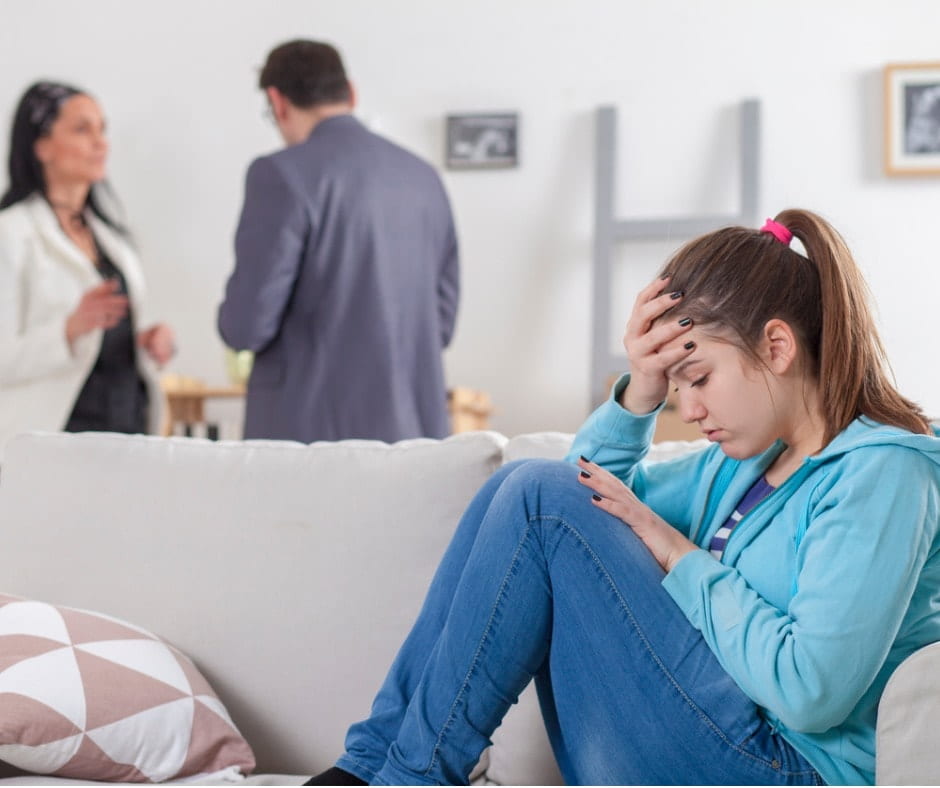The question around whether teenagers and children actually feel able to communicate openly with their parents, is one which will always prove difficult to answer.
Over time, there has been many changes in society, in terms of family dynamics and job roles which affect the amount of time parents are able to spend at home with their children. Depending on factors like these, they can then affect the kinds of relationships they are able to build.
Parent, Lucy Ashford from Saltash, can relate to the issue of trying to help her children feel comfortable enough to share their feelings with her, without them “feeling pressure to share every detail of their lives”. She feels that there is a “fine line” of how much parents should know, and wouldn’t want her children to “resort to lying” because they don’t want her to know certain things. Many other parents can relate to this problem, with some children struggling more than others to talk openly and be honest about how they’re feeling.
A good relationship between adults and children is vital, especially during the period of adolescence, as this is where there are lots of biological and psychosocial changes that have an impact on such relationships. Even though during adolescence is where there tends to be more intense conflict, it has been thought that these conflicts “help to negotiate relational changes” (Society for Research in Child Development). On the other hand, it is also important that parents don’t have too much control/impact on their children. As a study found that “people who had reported their parents had intruded on their privacy in childhood or encouraged dependence were more likely to have low scores in surveys of happiness and general well being carried out in their teens, their 30’s, their 40’s and even their 60’s” (The Guardian). Therefore it is clear that the decisions you make as a parent can have lifelong effects, so it is important to think about how much is ‘too much’.

Coming from a teenagers perspective, student Affinity May from Plymouth, talks about how the relationship she has with her parents is evolving as she gets older. She feels the relationship she has with them now is “definitely becoming a lot closer and open,” as she can “relate to a lot more situations,” which they experience as an adult. Although, this hasn’t always been the case, with Affinity keeping many secrets when she was younger, and she felt as though she was “very sheltered,” with what she would say around them. Interestingly, she believes that at that age she felt as though “privacy was a lot more important,” than her relationship with them, and didn’t think they would understand her properly. This is a factor which children do sometimes value over relationships if they do find it difficult to relate to their parents and talk openly. However now that Affinity can have more conversations with her parents, she finds it easy to speak about “financial topics… work and uni studies,” but still tends to avoid deeper topics such as “romantic life and friendships”. Other people can also relate to this level of privacy that Affinity feels comfortable with.
It is impossible to predict exactly how relationships between parents and children will evolve in the future, but we can already see that due to changes over time to the traditional ‘nuclear family’ children may not have a father figure in their life, they may see one parent more than the other due to certain job roles and they may have been brought up by members of their family, which aren’t their Mum or Dad. All of these factors can influence the bonds that children and teenagers build with their parents, and as a result, influence how guarded or private they then feel when parents try to talk to them about different topics. During the past 20 years about “one in five children have been growing up in a lone-parent family,” reflecting “big social shifts in attitudes and opportunities, some of which started in the 1960’s, when women began to gain more control over when to have children” (BBC).
On top of this, the fact that some teenagers have divorced parents, can cause children “to experience short-term negative effects; especially anxiety, anger, shock and disbelief” (A study by psychologist E. Mavis Hetherington). With statistics showing that, “As of 2011 42% of marriages end in divorce,” but thankfully this figure is seen to be decreasing slowly. Sara McLanahan, professor of sociology at Princeton University, in the US who was a single parent herself for 10 years after her first marriage ended in divorce, found that “Having two adults who co-operate to raise the child, who give time and money, means there are just more resources than one doing it” (BBC). Although this can’t be said for all children, it shows that children do tend to benefit from having two parents around, or seeing both parents often if their parents are split. I can relate to this personally, and although my parents split up when I was at a young age, I still have great relationships with them both, and these bonds have strengthened as I’ve got older, backing up Affinity’s point, about maturity and relating to adult topics.
As children and teenagers progress through adulthood, everyone is different in terms of feeling able to be open and honest with their parents. Although this path may prove more difficult for some children depending on their development, dynamic of their family and the childhood they experience, it is definitely a change which is seen over time.
